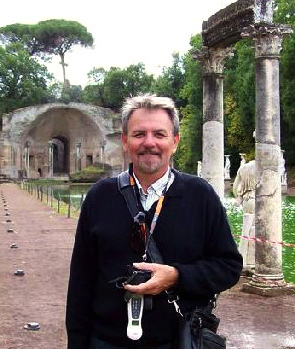
–
Grace is not a hidden agenda.
–
Grace is not a hidden agenda.
–
Now, we do live in a time, a religious atmosphere, where Christianity is often presented as something that needs to be appropriated by the individual. It’s offered to you…right? But you have to do something, believe something, show some kind of earnestness, some kind of seriousness before it can really be yours. We take this so much for granted in our Western way of thinking, that it’s hard to imagine this is precisely how Martin Luther did not view the gospel. It was not something that was appropriated by the individual after assessing it’s value. It was something that was given…to the unacceptable …to the unworthy. And we could even go so far as to say, to those who didn’t particularly want it. Now that is very different.
–
I like the text this morning… “The Lord has bared His Holy arm before all the nations. All the ends of earth shall see the salvation of God.” Translation: He’s played His hand. He’s let it out… in the open. It’s become accessible…available…real.
–
Now, this morning we’re going to receive The Lord’s Supper. Just exactly what do we think is going on here…in this meal, here on Christmas Day? Is this bread and wine given to you so that you can conjure up within yourself some kind of spiritual feeling about what it is or how it’s valued or what it might do for you… or what it might mean? Is it left to you, to me, to simply take these elements and then decide for ourselves what their value is? The answer is ‘no’.
Now for many people the answer would be ‘yes’. “I must have the proper amount of faith to receive this. I must have enough earnestness to really perceive what’s going on here.” Well…I’ve been doing it for a long time, as many of you have, and I’m still not sure what’s going on here. There’s a deep, numinous, inaccessible mystery here, in one sense…but that’s not what we’re concerned about in the sacrament. What were concerned about is that God plays His hand here, for us.
–
Last night we talked about how in the baby Jesus, God expresses Himself. He shows Himself. There’s nothing left to the imagination. And if there is anything that we spiritual ladder climbers like it’s having our spiritual imaginations left intact….right? I mean I’m kinda that way at times. I like to drift off into all kinds of speculations about God… and the next thing I know I’ve lost myself in the etherial clouds of…whatever…I don’t know…I mean the temptation is in all of us to do so. So at Christmas we return again to that fundamental of the Christian faith, God has expressed Himself…He’s taken the mystery out of Himself…but for a very particular reason. He doesn’t show everything about Himself to us, obviously. So why does He show us what He shows us in Jesus…in the sacraments? Why does He speak in the word so that our ears can detect what he says? For our salvation. God doesn’t come in Christ Jesus, in the sacraments, in the word of the gospel, to answer our religious questions. To demonstrate Himself to us in the sense that He has to prove anything to us. He comes to do something for us. And to put a finer point on it, to do something …’to us’. He comes to ‘give us salvation’.
–
There was a time, in the Lutheran Church, when we baptized our babies and we celebrated that… and we sang the liturgy and sang the hymns and rejoiced in what God has given us in Baptism. Nowadays, everybody is up in arms about Baptism. “Well…it can’t be that gracious. You’ve got to do something” …and we’re right back in that paradigm of, “Well…what do I have to do to appropriate it…to make it my own?”
God didn’t wait for our assessment before He came into the world in the baby Jesus. “OK…who down there thinks this is a good idea…that I’ll show up in Jesus Christ? Let me see a show of hands. Alright…I guess that’s enough…I’ll come.” No…He came because He chose to come. He came even though He wasn’t wanted. Remember the text last night from John 1? “He came to his own people and his own people didn’t receive him.” He’s not waiting for us to decide something or to change our lives and get ourselves straight or right with God…He comes to us in the midst of our tangledness, our lostness, our confusion, our sin, our hurts, our hopes, our dreams…all the tangled up stuff of our lives…and He takes a hold of us right there in the middle of it. That’s the gospel! He doesn’t wait for us to make a decision. He makes the decision for us. Not on our behalf..but for our benefit. This is a real challenging way of thinking about the faith for people today. Because we’ve all decided, one way or another, many of us, that somehow, “Well…that’s all well and good but we have to have the final say… somehow.”
–
But today we are here to proclaim…God with us…Emanuel. Not because we’ve asked for Him. Not because we’re particularly happy that He is around. But because in His grace…and His mercy…He has chosen to be with us.
–
Over a lot of years, in the Christian life, I find myself… and maybe you do too, struggling with this God. And what I struggle with most is the idea of that sheer, utter grace and mercy…that requires nothing. It’s so hard for me to embrace it. Do you remember a few weeks ago we talked about this, and I asked you what the hardest thing about being a Christian is? Is it being spiritual? No. The hardest thing about being a Christian is believing God’s promises. Just believing and trusting when He says “You are mine. I have chosen you. I forgive your sins for Jesus’ sake.” Just believe Him. Rest in Him. Allow that Word to be the final Word. And so we can push the envelope as Lutherans, right out to the breaking point and say, The sacrament is the gospel! Baptism and the Lord’s Supper are the gospel! They are the tangible, visible, no questions remaining, givenness of God, right here in real time…for you. There is a connection between the visible Jesus of Nazareth, the incarnate man of God, and the visible water of Baptism. And the visible bread and wine of communion, and the audible word of forgiveness and grace that is spoken to you. That’s all Word of God. Not waiting for any of us to make any decisions. It just washes over us. Like a gracious flood. Here…have a Baptism. Here… have Communion. Here…have this…your sin is forgiven for Jesus sake. If you heard it… it happened. It’s as simple as that. “But I have to do something…don’t I ?” And what’s the answer? “No”. That’s why the Christian community, early on, called this message, “Good News”….of great joy! For everybody! Born for you, this day in the city of David, is a Savior. God has expressed Himself…like a mother gives milk to a child. Like a parent takes a child in a warm embrace. Tangible…real. That’s how we need to view what’s going on in your Baptism, and in the Lord’s Supper, and in the Word of promise from the preacher. It’s as real as you hear, it’s as real as you taste. It’s right there. Immediate. Present. Like Jesus…putting his hand on a dead boy, on a funeral bier, and saying, “Get up!” And life is given. That’s how the sacrament works. “This is my body, for you. This is my blood, for you.” Right here…right now. Don’t try to take it inside and spiritualize it. Don’t try to bring it inside and write theology about it. Don’t try to take it inward and figure it out. Just taste it. Let it be what it is. God for you. Pressing and impressing Himself on you…with His forgiveness and mercy. Promising you life and hope.
Now, that way of receiving the sacrament leaves nothing left…except to rejoice in it. To celebrate it. To live within it. For it sets us on a path that Jesus came to set us on, which is the path of freedom. Not freedom because we have sized everything up and figured it out, but the freedom that comes from knowing that God is not against us but for us. That the forgiveness of sins are the arms that carry us through life. That our past is never held against us. That the future is wide open. And in this sacrament we see that future coming back to us from the far side, way out there, giving us that foretaste, that image of what is coming to us. God in His sheer graciousness, providing for us a future that we cannot provide for ourselves.
–
So the coming of Jesus at Christmas, Emanuel, God with us, the incarnation…that fancy Latin theological term that really means the ‘in the fleshiness’… the carne… the flesh… in the meat. In the flesh of Jesus God reveals Himself…makes Himself clear. “This is who I am. And as I have always been…I’m for you.” That’s the whole point of creation. We talked about that last night. Creation is bent toward our good. It’s here for us. Ready for us. Waiting for us. As Jesus is bent for… meant for… our good.
–
So grace is not a hidden agenda. The sacraments, the gospel, are not spiritual ideas for us to internalize and have to kinda figure out. They come utterly from outside of us. Asking nothing from us. But given solely by His grace…to us…that our confidence may be in God’s grace. And, as Luther said, “In God’s grace…alone.”
–
Amen.
_
_________________________________________________________________________
–
Christmas Day sermon, 2013, by Pastor Mark Anderson
–










